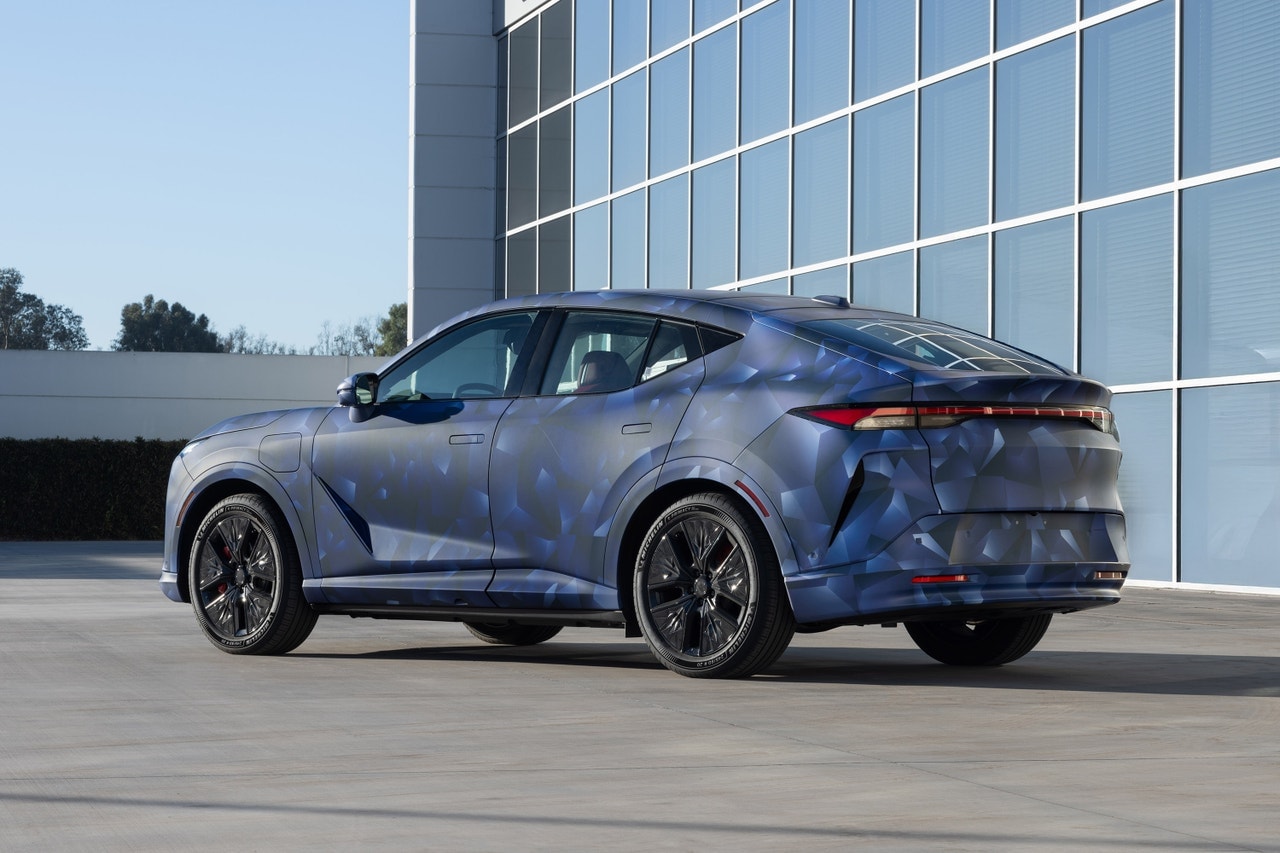- The 2026 RSX will be Acura's next electric SUV.
- It's not based on the current ZDX and will debut a brand-new in-car tech interface.
- The RSX goes into production near the end of 2025.
2026 Acura RSX Confirmed: An Electric SUV With Brand-New Tech
Acura resurrects the name of a sports car for its next EV
A new Acura RSX is coming later this year. And no, it isn't a rebirth of Acura's lovely little sport compact from the early 2000s. The 2026 RSX that Acura teased Wednesday is a brand-new electric SUV that is effectively the production version of the Performance EV Concept the brand showed in 2024. Plus, it marks the first use of Honda's new operating system, Asimo OS, which the company announced at CES earlier this month.
As you can see in this camouflaged prototype, the RSX follows the popular crossover-coupe trend with its heavily raked roofline and rear glass. Curiously, this makes the new RSX look a lot more like the old ZDX, a vehicle whose name was also recently resurrected for EV duty. There are certainly nods to the Performance EV Concept in terms of the RSX's overall shape, but we're curious if the production SUV's front end will be as pointy and boat-like as the show car from last summer.
The RSX will be the first EV built on Honda's proprietary electric vehicle architecture; this won't share its bones with the ZDX or Honda Prologue (or Chevy Blazer EV). The RSX is also not to be confused with the upcoming Honda 0 Series SUV that was previewed at CES earlier this month. This is a stand-alone model — though we won't be surprised if a Honda version shows up in due time.
Unfortunately, we don't know much else about the RSX right now, but we won't have to wait too much longer for all the details. The Acura RSX will go into production in Ohio later this year, with sales kicking off in either late 2025 or early 2026.
Am I Ready for an EV?
- EV ownership works best if you can charge at home (240V outlet) This typically means a 240V home installation, or other places your car is parked for several hours each day. Don't expect a regular household outlet (120V) to suffice.
- Adding a home charging system is estimated to cost $1,616 in This is an estimate for your area. Using your address and the answers you provide, Treehouse can provide a more accurate price.
- Edmunds is partnering with Treehouse, an independent provider of home EV installation services. Learn more Edmunds customers receive a 10% installation discount and 4% smart charger discount. Discount excludes permit, hosted inspection, and load management devices. Valid for 30 days.



 by
by  edited by
edited by